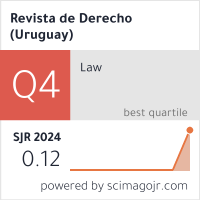Children Born through Surrogacy in a Stateless Condition
DOI:
https://doi.org/10.47274/DERUM/47.4Keywords:
Surrogacy, Nationality, Stateless, ChildrenAbstract
This article addresses the analysis of the T-232 of 2024 ruling by the Colombian Constitutional
Court, which resolves a surrogacy case involving Leticia, a minor who lost her nationality due to inconsistencies in her birth registration. The legal action filed by her father, Boris, sought to restore the rights of the child, who was left stateless. The Court, in its decision, recognized Leticia’s right to Colombian nationality and emphasized the State’s obligation to protect the fundamental rights of children in accordance with international standards. This paper examines the violation of the child’s fundamental rights and the lack of regulation in Colombian legislation regarding surrogacy, which allowed for the situation of statelessness. Furthermore, it explores the need for clear legislation in Colombia to prevent future rights violations in similar cases.
Downloads
References
ACNUR. (2014). ¿Qué es la apatridia?. IBelong. https://www.unhcr.org/ibelong/es/que-es-la-apatridia/
Código Civil Colombiano. (1983). Código Civil Colombiano. Editorial Legis. (Art. 335).
Código Civil Colombiano. (1983). Código Civil Colombiano. Editorial Legis. (Art. 52).
Constitución Política de Colombia. (1991). Artículo 42. Recuperado de https://www.constitucioncolombia.com/articulo-42
Constitución Política de Colombia, Art. 44. (1991). Instituto Colombiano de Normas Técnicas y Certificación. https://www.constitucioncolombia.com/constitucionpolitica-colombia
Convención para Reducir los Casos de Apatridia. (1961). https://www.unhcr.org/ibelong/what-is-statelessness/1961-convention-reduce-statelessness/
Corte Constitucional de Colombia. (2009). Sentencia T-968. https://www.corteconstitucional.
gov.co/relatoria/2009/T-968-09.htm
Corte Constitucional de Colombia. (2024). Sentencia T-232 de 2024. https://www.corteconstitucional.gov.co/relatoria/2024/T-232-24.htm
Di Maio, C. (2015). Los “niños fantasma de la República”: La nacionalidad francesa y el delicado tema de la maternidad subrogada. Civitas Europa, 2015(2), 263-265. https://doi.org/10.3917/civit.035.0263 DOI: https://doi.org/10.3917/civit.035.0263
Dworkin, R. (1977). Taking rights seriously. Harvard University Press.
Garibo Peyró, A. (2017). El interés superior del menor en los supuestos de maternidad
subrogada. Cuadernos de Bioética, XXVIII(2), 245-259. https://www.redalyc.org/pdf/875/87551223008.pdf
Instituto Colombiano de Bienestar Familiar. (2023). Todos los niños y niñas tienen derecho a una identidad. ICBF. https://www.icbf.gov.co/noticias/todos-los-ninos-y-ninas-tienen-derecho-una-identidad#:~:text=La%20identidad%20es%20un%20derecho,
a%20todos%20sus%20derechos%20fundamentales
Ley 1098 de 2006, 2006. Código de la Infancia y la Adolescencia. https://www.secretariasenado.gov.co/senado/basedoc/ley_1098_2006.html
Organización de las Naciones Unidas. (1948). Declaración Universal de Derechos Humanos. https://www.un.org/es/universal-declaration-human-rights/
Valero Heredia, A. (2019). La maternidad subrogada: Un asunto de derechos fundamentales. Teoría y realidad constitucional, 43, 421-440. DOI: https://doi.org/10.5944/trc.43.2019.24433























 This work is under a
This work is under a 